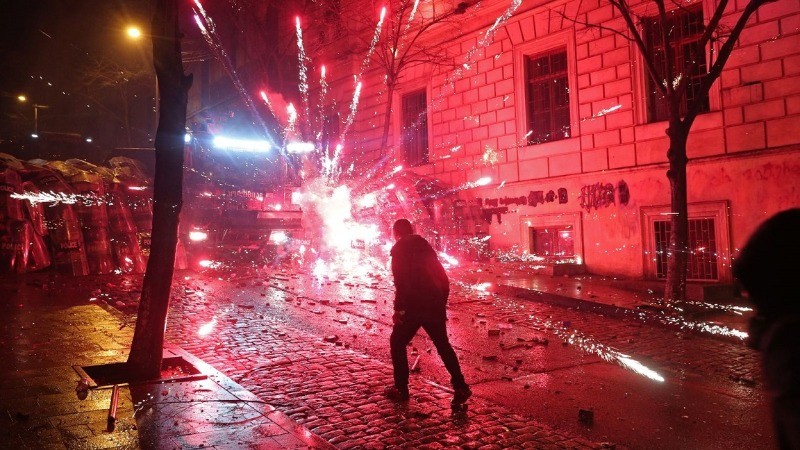
Massive protests continued to rock the capital of Georgia, Tbilisi, for the fourth consecutive night, fueled by anger over the government’s decision to suspend negotiations for joining the European Union (EU). The unrest, which has spread beyond the capital, saw clashes between protesters and riot police. Protesters, some donning gas masks and others waving Georgia and EU flags, gathered in large numbers at the central Rustaveli Avenue.
“I’m here for a very simple reason, to defend my European future and the democracy of my country,” said protester Nikoloz Miruashvili, expressing his dismay over the government's decision.
The protests began after Prime Minister Kobakhidze announced that EU membership talks would be delayed for another three years. He claimed the delay was a result of "blackmail" by the EU. However, many Georgians believe the government is shifting its focus toward closer ties with Russia and away from Europe, leading to fears of increasing authoritarianism.
Violence broke out after fireworks were fired at the parliament building and riot police, prompting the police to respond with tear gas and water cannons. The clashes resulted in injuries, with 27 protesters, 16 police officers, and one media worker hospitalized after Saturday night’s confrontations.
The tension escalated when Georgian Dream, the ruling party, accused the EU of using the prospect of EU membership as "blackmail" and announced that discussions on joining the union would be postponed until at least 2028.
As the protests continued into the night, large groups of riot police were stationed near parliament, and sporadic clashes were reported. The unrest shows no signs of dissipating, with protesters determined to voice their opposition to the government’s decision.